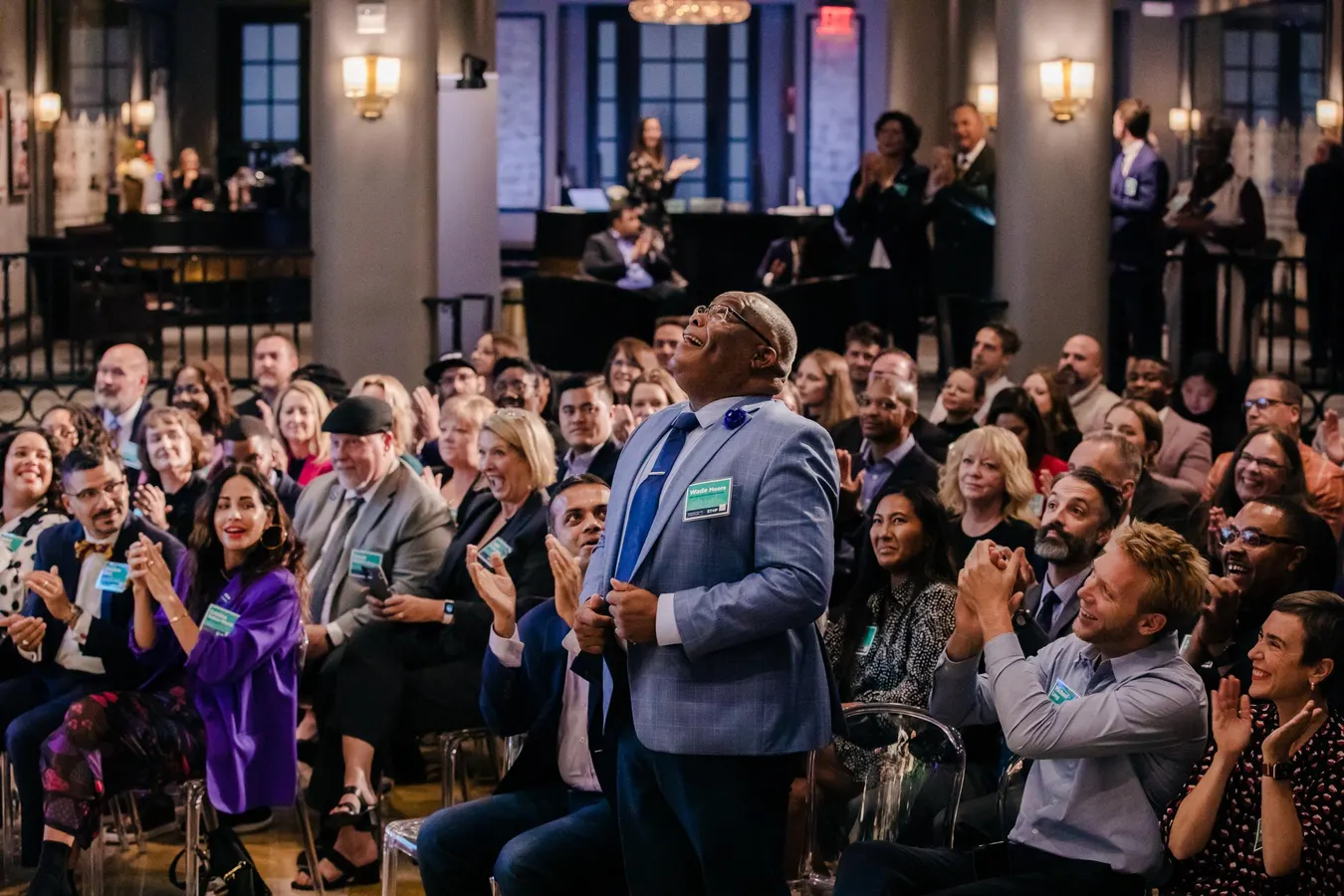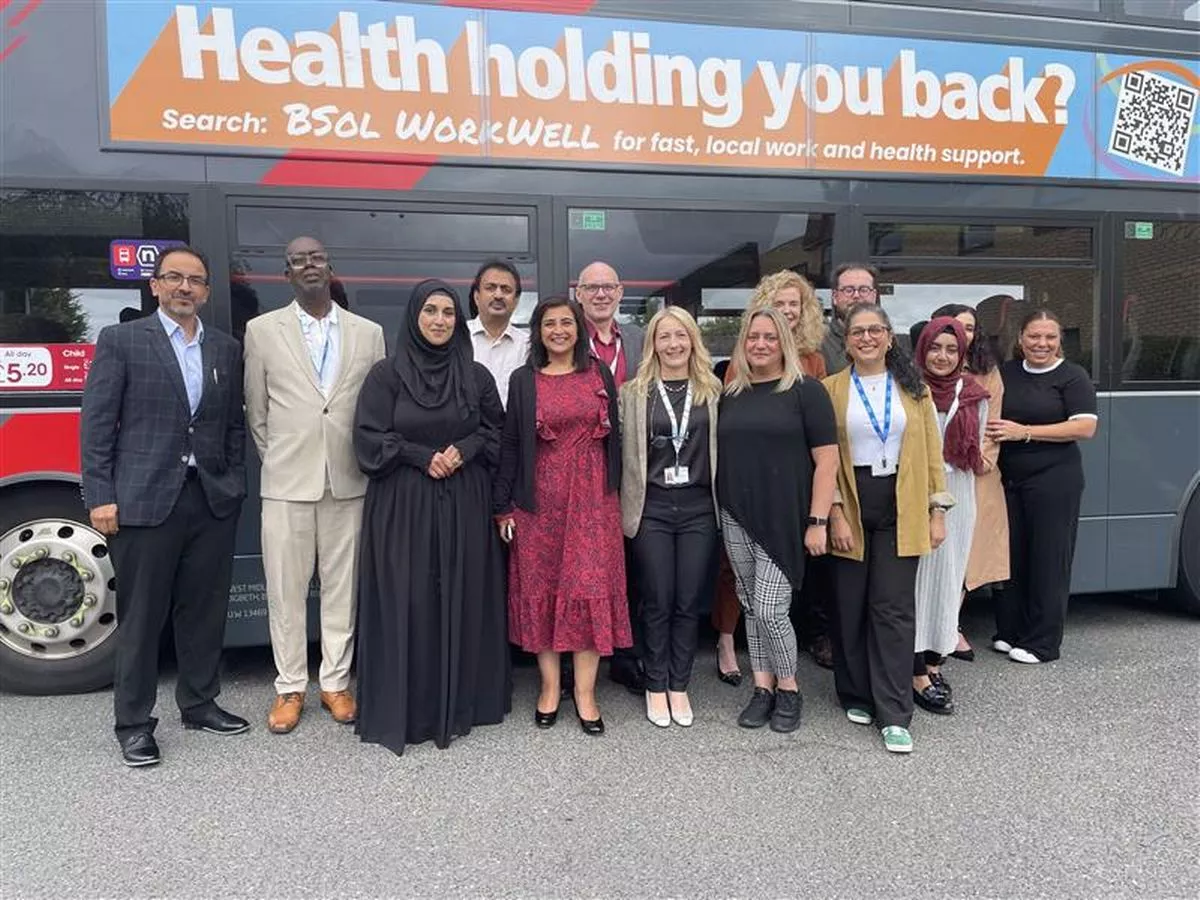By Caroline Allen,Contributor
Copyright forbes

Insights into how bold education entrepreneurs are redefining PreK-12 learning with innovation, choice, and student-centered solutions
Wade Moore, Founder and Dean of Urban Prep Academy in Wichita, Kansas, celebrates being named a Yass Prize awardee.
Center for Education Reform
Every summer, thousands of education entrepreneurs submit applications to vie for the $1 million Yass Prize, presenting how they are transforming education. After five years and more than $50 million awarded to 180+ providers thanks to the generous support of Jeff and Janine Yass, the lessons are clear: education’s future is not going to be dictated by bureaucracies or think tanks. It’s being built, right now, by bold innovators on the ground.
Here are five takeaways that have emerged from the first five years of the Yass Prize.
1. Labels Don’t Define Learning
Public vs. private. Charter vs. district. Microschool vs. traditional classroom. These labels drive politics, but they don’t reflect what actually works for our nation’s students. The Yass Prize purposefully doesn’t fund one model or type of school. Instead, funding is allocated towards ideas that have tangible impact.
That’s intentional. The most powerful vision for the future of education isn’t uniform. It’s a mosaic. Public charter schools like Arizona Autism. Private faith-based schools in Florida like CARE Elementary. Microschools in Texas like Leading Little Arrows. And a national ed tech platform for career exploration, Career ViewXR.
The Yass Prize review process has made it clear: what unites education providers – especially their unwavering commitment to students – is much stronger than what divides them.
2. Knowing Your Secret Sauce
MORE FOR YOU
Many schools describe themselves the same way: “personalized,” “supportive,” “relationship-driven.” Important, yes – but baseline.
What separates real innovation is a clear “secret sauce.” Take SailFuture in Florida, where a 65-foot sailboat doubles as a classroom for students in foster care, or Alabama Aerospace, a charter where kids are immersed in aviation and aerospace learning. Or Rapunzl, an ed tech app that gamifies investing and financial literacy. These organizations stand out from the pile because they can articulate exactly what makes them different.
The standouts don’t just say they’re different. They show it, and this clarity is a competitive advantage.
3. Parents Won’t Accept One-Size-Fits-All
COVID-19 blew open the doors on education. Parents got a front-row seat to how their kids were learning, or in many cases, not learning. It was a national wake-up call.
Families want choice, and they’re acting on it. In states like Iowa and Texas, education savings accounts (ESAs) are giving parents control. Entrepreneurs are creating alternatives. Parents are seizing them.
The status quo is collapsing under its own weight. Systems built decades ago cannot meet 21st-century demands, especially with AI, remote work, and global competition reshaping the skills students need. The message from parents is simple: “Do better, or we’ll find someone who will.”
4. Policy Is the Gatekeeper of Innovation
Good policy unleashes talent. Bad policy strangles it.
Where dollars follow students and regulators give leaders freedom, teachers turn into entrepreneurs and founders build models that fit students, not systems.
It’s no surprise that the fastest-growing education ventures are gravitating to states with policies that embrace permissionless innovation. The lesson is obvious: if you want to attract talent, investment, and results, give education the same freedom the private sector enjoys.
5. The Best Is Yet to Come…
The future isn’t one model or philosophy – it’s an ecosystem.
Artificial intelligence is already changing how kids learn and the skills they’ll need to thrive. New policies like Texas’s education savings accounts are creating unprecedented opportunities. And the next cohort of Yass Prize contenders will raise the bar again.
Education leaders must continue to be bold. Sustainable. Willing to experiment. And most importantly, willing to put students – not systems – at the center of each and every decision.
The question is not whether innovation is coming. It’s whether leaders – policy, business, and education – will step up fast enough to meet it.
The Bottom Line
After five years, the Yass Prize has shown that the future of American education is being shaped by bold education entrepreneurs redefining PreK–12 learning. And this is just the beginning.
Editorial StandardsReprints & Permissions



